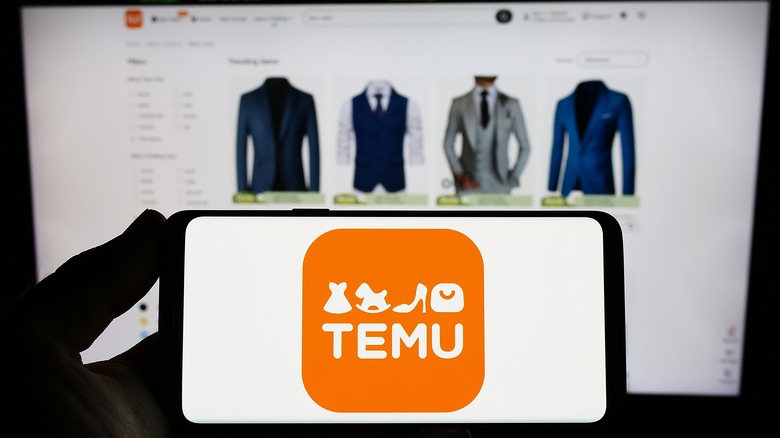Why TEMU's Prices Are So Low, And Why You Shouldn't Fall For It
Temu has become the latest online marketplace offering a staggering amount of products for equally staggeringly low prices. It's a niche but also increasingly saturated market previously dominated by the likes of Wish, Shein, and Alibaba. However, the appeal is clear: in a time when inflation is soaring, finding a site that offers almost everything you could ever want or need at low prices could take off a lot of shopping stress.
There is, of course, a double-edged sword to this. Temu is not accredited by the Better Business Bureau, with 659 complaints filed against the company since its inception in July 2022. Even positive reviews of the service, such as this one from Totally The Bomb, come with criticisms over what is advertised to customers in comparison to what they receive. Just because you can get something at a low price doesn't mean that you'll be receiving exactly what you are paying for. Most of the time, the cost of shipping these products is far more than the products themselves, making them more expensive than expected.
However, there are allegedly more disturbing reasons why Temu's prices are so low.
Why Temu is too good to be true
As reported by Wired, the reason why Temu products are so cheap is because they are unbranded, mass-produced products from manufacturers across China. While products listed on the website might flaunt specific brand names in descriptions, the chances are very high that they will just be knock-offs. In fact, they are creating so many knock-offs and cheaply-made generic items that these manufacturers are allegedly being forced to cut prices in order to make them in the first place. One manufacturer told Wired that they often are working for nothing, which reflects in the price of the product. Not only does this ensure that lower-quality products than advertised as being sold, but it also means that those who make them likely aren't being paid enough, if at all.
While it is unclear whether Temu is enacting forced labor onto these manufacturers, the United States government has become suspicious of them. According to a report from the Select Committee on the China Communist Party, they accuse Temu of exploiting a loophole within the Uyghur Forced Labor Prevention Act, or UFLPA, that allows them to not monitor the working conditions of their contractors.
As such, a new light could be painted as to how Temu's prices are as staggeringly low as they are. Even if the prospect of not receiving the product you paid for didn't deter you, the concerning lack of transparency regarding their manufacturers is troubling.

